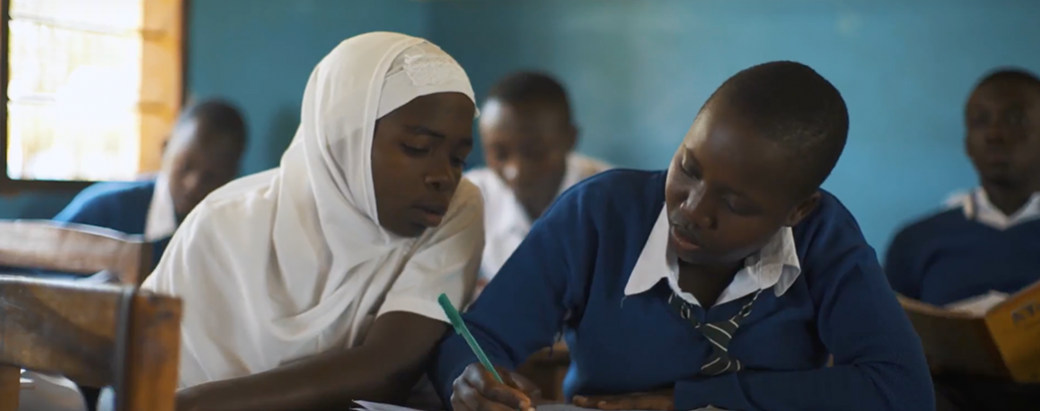
About the Project
This project is one of the 2017 WISE Awards winners.
Camfed’s Learner Guide Program invests in quality secondary education, and ensures that young people have the necessary foundation, including a broader set of life skills, to transition to productive, fulfilling livelihoods in Tanzania. It provides a scalable, sustainable model that simultaneously tackles the quality of education and opens up opportunities for young women in the post-secondary transition.
Through the program, young women school graduates – formerly supported through school by Camfed and now members of its CAMA alumnae network – return to their local schools, support marginalized children in their studies, and deliver a tailored life skills program to complement, but not replace, the formal academic curriculum.
Context and Issue
In Tanzania, girls’ access to school and their ability to learn and succeed is hampered by the complex barriers they face. Many are single or double orphans, who shoulder the burden of household and agricultural chores, care for relatives, and often worry about their next meal. Secondary school represents a long geographical as well as psychological distance for girls without financial resources and who do not feel entitled to learn, a distance exacerbated by tuition in English, a second or even third language for many rural students. Those who never access secondary school are at grave risk of early pregnancy, early marriage and exploitation — condemned to a life of exclusion and poverty.
These challenges are compounded by a lack of preparation at school for the context girls and young women face on completing secondary education. The lack of female teachers and the reluctance of qualified teachers from urban areas to relocate to remote schools mean that female role models for marginalized children are few, and quality of learning in schools is generally low. Narrow academic curricula fail to prepare students for the challenges of entrepreneurship, usually the only realistic and safe income-generation opportunity, particularly for young women.
Solution and Impact
The program is fully endorsed by the Ministry of Education and integrated into the school timetable. United by their background of rural poverty, Learner Guides are important role models and mentors. They empathize with marginalized students and help them navigate their challenges. In return for their commitment, Learner Guides access interest-free loans to start businesses as a key incentive to make the 18-month program commitment, a mobile technology platform through which to connect with each other and access new resources, and the opportunity to secure a BTEC qualification as a stepping stone to formal teacher training.
The program operates in 230 Tanzanian secondary schools. 861 Learner Guides have so far reached over 100,000 secondary school children with weekly sessions. It provides a model of excellence for young women to multiply the returns of their education to benefit the next generation. It opens up new pathways for them as entrepreneurs and teachers, and new job opportunities based on their status within communities, acquiring economic independence while helping particularly marginalized girls to succeed. The result is a virtuous cycle of development, through which the investment in girls’ education pays ever-increasing dividends in young women’s activism, in turn raising girls’ educational aspirations and success.
The Learner Guide Program is designed to be inherently sustainable and scalable. Through the program’s ongoing partnership with Kiva, Camfed has intentionally built sustainability into the incentive scheme, enabling young women to make a long-term volunteer commitment to support children in their communities while earning an income, without the threat of crippling loan interest repayments. Many have continued their work beyond the 18-month commitment required by the program. Management of the program is embedded in local infrastructure, with Learner Guides supported by a range of key community stakeholders, including school and government authorities.
Future Developments
The program’s community-led approach operated in partnership with the Ministry of Education has already facilitated the expansion and adaptation of the program into additional districts in Tanzania and it will continue to scale up to further districts, including through training of non-Camfed alumnae as Learner Guides.
Partnership with government also offers the potential for the program to be rolled out at scale through integration into the national school system, creating a sustainable model to improve education outcomes and extending the benefits to thousands more children and young women across the country. Further regional expansion has begun in Zimbabwe and Ghana, with replicability made possible through the potential of the Pan-African CAMA network. Each of these young women is a potential Learner Guide, offering the capacity to scale the program still further into all of Camfed’s partner countries, and beyond.


